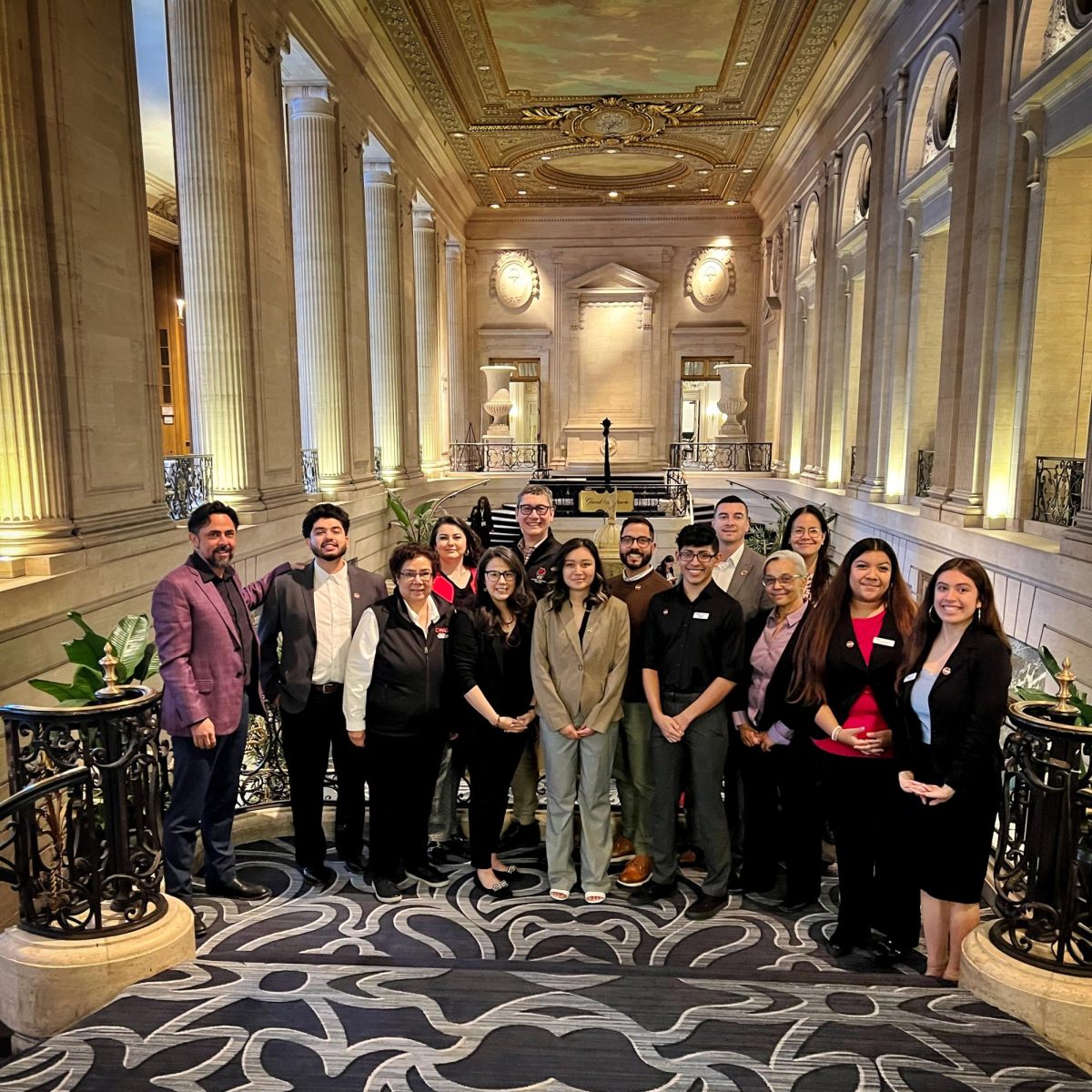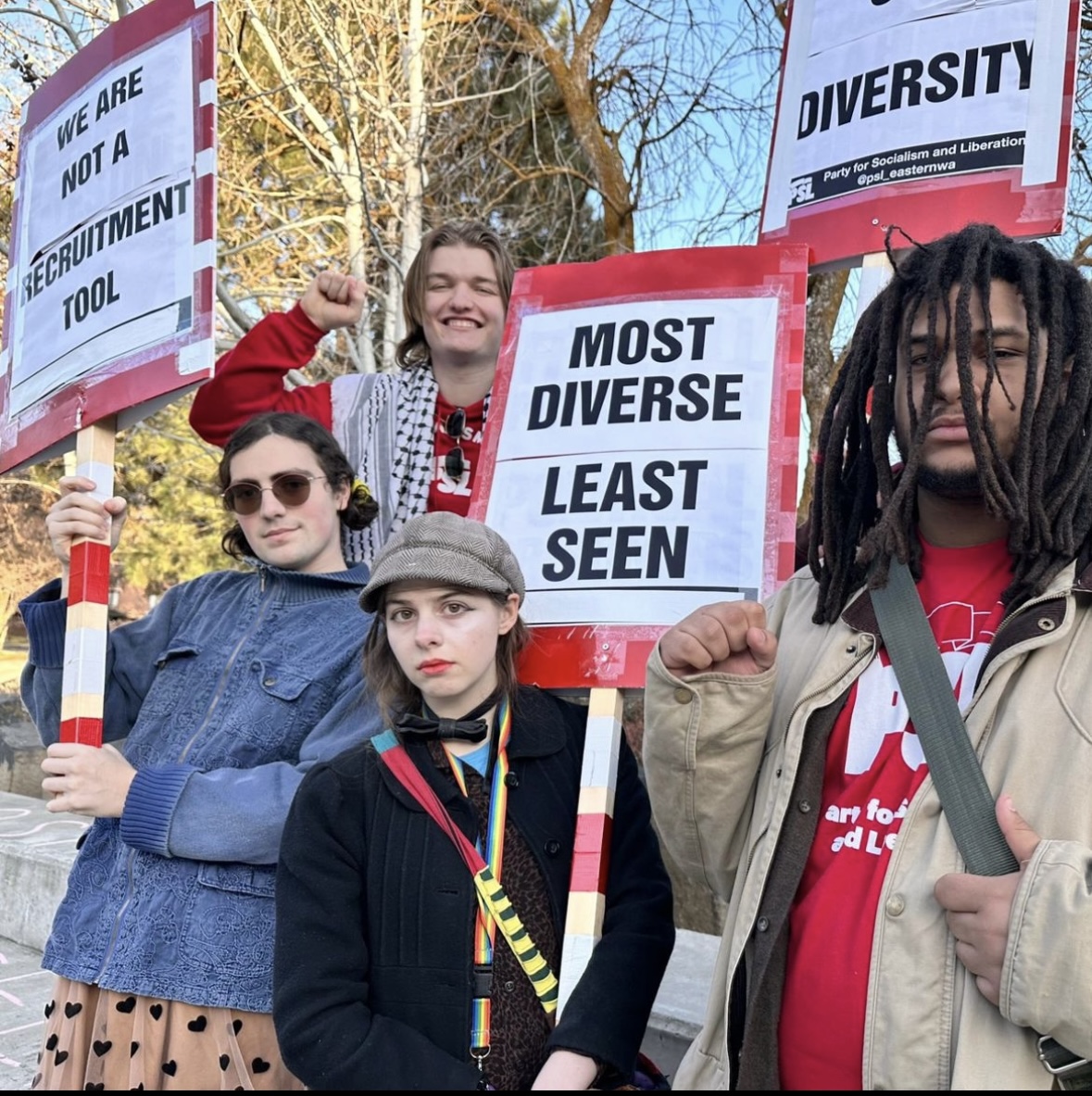
BY R. Troy Peterson
Staff Reporter
Central’s recycling program has benefitted the campus and community for years, but some believe the university could be doing better.
Jason Scribner says he has worked for Central for 10 years as a trash collector. He says that for three of those ten years, he has been picking up paper recycling for the university’s academic departments.
“We collect every day,” Scribner said. “Anywhere from 2,000 to 1,800 pounds every Tuesday and Thursday.”
Scribner collects shredded recycled paper from the academic side of the university early in the morning.
“Everything that we collect goes to Elmview,” Scribner says. “Elmview is a local business here in town that handles all of the recycling that we collect.”
Liz Sessions is an Elmview employee who has been with the company for 15 years. She said she has been in charge of recycling for nine years.
She says it is hard to determine exactly how much recycled material comes from Central, as they receive shipments from many local businesses. Sessions says that at the end of the academic year, Central often delivers recycled materials three days a week.
Sessions says recycling is only a small aspect of the services the company offer. Elmview employs disabled people, Sessions says works with about 43 people in recycling.
“We have janitorial. We have senior [citizens], Meals on Wheels, we have the city cleanup,” Sessions said. “We do individual job coaching for people that have jobs in the community. So we do quite a bit.”
Jacob Wittman is the executive vice president of the Associated Students of Central Washington University Board of Directors (BOD), and an environmental studies minor who has been looking into the sustainability policies on campus.
“Currently, recycling is an issue, and it’s not up to par with other universities,” Wittman said. “One of my main issues is the lack of recycling bins around campus.”
Wittman said that university housing has good recycling practices, but he would like to see those practices expanded to other parts of the campus, such as academic halls and walkways.
Wittman has proposed a green initiative, which he said focuses primarily on recycling. Wittman said that recycling is a major environmental issue right now.
“I’m graduating here in June,” Wittman said. “So I’d like to just really tackle recycling.”
Wittman also said that the major goal of the recycling initiative is to raise campus awareness of recycling and get more students involved.
“At this time I’ve heard that dining may not be interested in [composting] because it’s costly and hard to implement,” Wittman said.
According to an e-mail received by Wittman from Steve Johnson, director of housing facilities, Central’s housing department reported 129,200 pounds of recycled materials. These recycled materials, according to the document, were composed of 42,940 pounds of cardboard and 86,260 pounds of mixed recyclable materials.
The report identifies the mixed materials as over 900 pounds of plastic, just under 400 pounds of aluminum, over 600 pounds of paper and over 200 pounds of glass from housing. Johnson also specifies that the numbers come from the trash bags collected from each building.
Wittman said that the average processing time for an initiative, from conception to approval, is about two months. He said that the clean air initiative, which he worked on with Scott Kazmi, vice president of student life and facilities, took three months to go pass.
Some of Central’s buildings, such as Dean Hall, are required to maintain full recycling capabilities in order to maintain their Leadership in Energy and Environmental Design (LEED) Gold certification from the U.S. Green Building Council (USGBC). However, most buildings on campus are not required to meet the same standards.
Wittman said he attended a meeting with several people from facilities and waste management about improving the recycling options on campus, and about the possibility of on-campus compost sites.
Scribner said he had not heard of Wittman’s campus initiative, and that a large portion of unrecycled paper comes from the scheduling office.
“Tell [the scheduling office] to stop throwing their paper in the garbage and learn to recycle. That’d be a great start. They walk around and put this stuff up in every building and every building I go to, all this stuff ends up in the garbage,” Scribner said.
According to Elmview documents, they collected 393 tons of mixed recyclables and 24 tons of cardboard.
“We’ve got all I can handle right now,” Sessions said of the delivered recyclable materials. “But, you know, it’s always good. Always good. We can make it work.”





